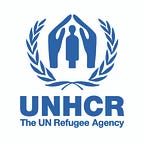This is what it is like to go to school in war zone
Shabia Mantoo, a UNHCR spokesperson in Yemen, finds refugee children are determined to keep studying despite the destruction around them.
Josef is cheerful, unfailingly polite and looks for all the world like a cherub in a painting by a Renaissance master. When he chats away, he gives no indication of the violence, loss and hardship that has marred his short life.
Born to Ethiopian parents who were forced to flee their homes several years ago, 10-year-old Josef is one of more than 280,000 refugees in Yemen — people who escaped conflict and persecution in one country only to face it again in another. For Yemen is a scene of disease and destruction.
Since the latest round of conflict erupted in 2015, Josef’s father has passed away, his school has shut down, and he himself narrowly escaped with his own life when a shell landed close by. It is impossible to know how much pain there must be below that sunny exterior. But he keeps his head high, his shoulders back and his smile on.
“When I hear the explosions I get scared, but when I’m in the classroom I feel safe.”
Josef is now back at a new school, enrolled through support from a UNHCR and partner-run community centre in the Yemeni capital. Other than the opportunity to keep learning — and a wish that the bombs would stop raining down — he makes no demands on anyone else. “When I hear the explosions I get scared, but when I’m in the classroom I feel safe. I just want to finish my schooling so I can become an engineer,” he told me, with his characteristic beam.
For years Yemen has been one of the world’s most generous refugee-hosting countries, something for which it has rarely been given credit. As the only country in the Arabian Peninsula that is a signatory to the 1951 Refugee Convention, it has historically been a place of sanctuary for those fleeing violence in the Horn of Africa and beyond. Refugees arriving here have been given access to essential state-run services, including education, but with conflict spreading unabated across the country it means that refugee and local children alike face a multitude of barriers as they seek to continue their schooling.
Basic services and institutions, including the public education system, are buckling because of war. Many refugee households wrestle with poverty and disease, unable to find work and lacking the social networks, protection and safety nets that the locals can fall back on, even in these desperate times. Dozens of people are killed or injured every day, while civilian infrastructure, including schools, have been targeted and children have been killed on their way to school — or even while they are there. Those who have to journey for miles just to get to the classroom are particularly exposed.
One of the results of all this is that teachers in Yemen have had to learn subjects and strategies way beyond the usual demands placed on members of the profession. Samy al-Yamani, a school resource manager who I met at a school in Sana’a, sees the effects of the violence on her students every day. “Some children are so traumatized by the conflict that during classes they pass out, some scream, some start shouting and some hide under the table,” she says. “I’d say up to 50 per cent of the students at school exhibit symptoms of trauma because of exposure to the conflict.”
“I’d say up to 50 per cent of the students at school exhibit symptoms of trauma because of exposure to the conflict.”
On another visit to a school in the Basateen district of Aden, in a residential area host to a large community of refugees and internally displaced persons living side by side with Yemenis, I saw what looked like the shell of a school bus that had taken a direct hit. The houses around were pockmarked with bullet holes. Under the hot summer sun, school students, having finished for the day, passed by, books in their hand, backpacks in tow and smiles on their faces, seemingly unfazed by their apocalyptic surroundings. The image of the bus is one I find hard to forget.
Yet these young refugees, and those who work at their schools and other education centres, hold on — still wanting to teach, still wanting to learn. They hold on to dreams of becoming doctors and engineers (Josef’s profession of choice) — the sorts of jobs that any war-torn country will need if it is to rebuild when the fighting stops. Education is their lifeline to the future.
Read the report: Left Behind: Refugee Education in Crisis.
